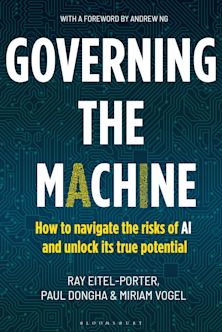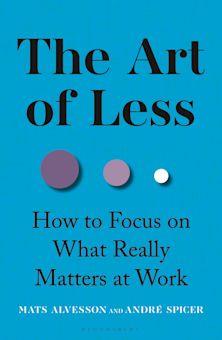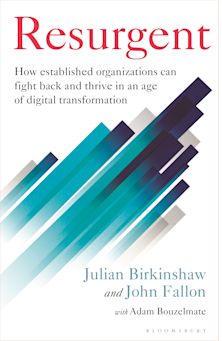Disenchantment
Managing Motivation and Demotivation at Work
Disenchantment
Managing Motivation and Demotivation at Work
- Delivery and returns info
-
Free UK delivery on orders £30 or over
You must sign in to add this item to your wishlist. Please sign in or create an account
Description
An essential guide to understanding the causes of disenchantment in the workplace, and how organisations can work to prevent it.
Workplace disenchantment can cause major issues for organisations – productivity decreases, employees can turn actively destructive and individual health and well-being can deteriorate. Most people start a job happy enough and determined to do a good job – if they are lucky, they have found a job which suits their skills and values. They may be eager, hopeful and willing to be engaged. So when and why do they become disenchanted and demotivated?
In this new book, Adrian Furnham and Luke Treglown look at several theories into job satisfaction and workplace motivation. They explore how much of a motivator money really is, and which personality profiles are more likely to lead to a disruptive, disenchanted employee.
Disenchantment discusses the related and identifiable behaviours that very clearly lead to disenchantment, and how individuals and organisations can work to prevent this and boost motivation and engagement in a way that is practicable and sustainable. Keeping employees motivated takes more than just ensuring they're not unhappy, and Disenchantment outlines some of the ways that organisations can manage this.
Table of Contents
Acknowledgements
Chapter 1: Introduction
Chapter 2: The Nature of Work Motivation: Passion, energy, flow and enchantment
Chapter 3: A Theory of Disenchantment
Chapter 4: The Bad Apple & Bad Barrel Hypothesis
Chapter 5: Organisational Honesty, Lying and Hypocrisy
Chapter 6: A Sense of Fairness: Perceived Equity and Inequity
Chapter 7: Bullying versus Respect
Chapter 8: Trust and Distrust
Chapter 9: A Kept Word versus a Broken Promise
Chapter 10: Implications of Disenchantment and Case Studies
References
Product details
| Published | 14 Dec 2017 |
|---|---|
| Format | Hardback |
| Edition | 1st |
| Extent | 280 |
| ISBN | 9781472949721 |
| Imprint | Bloomsbury Business |
| Dimensions | 234 x 156 mm |
| Publisher | Bloomsbury Publishing |
About the contributors
Reviews
-
Superb insight into one of the most difficult areas of the workplace. This book should be required reading for C-suite and HR professionals alike.
David Charters, Author and Founder of PartnerCapital
-
Adrian and Luke's work is as timely as it is relevant, providing an analytical framework and practical advice to address disenchantment. Read this book to learn what motivates and what demotivates us at work.
Ernst von Kimakowitz, Director and Co-founder of the Humanistic Management Center
-
A great reference guide for leaders and organizations in understanding why people react the way they do, and breaks some popular assumptions about how to get the best and avoid the worst we often see around us or experience ourselves.
Chris Roebuck, Visiting Professor of Transformational Leadership, Cass Business School
-
In this briskly written and keenly observed book, Adrian and Luke toss aside the prevailing myths regarding the alleged power of Anglo-Saxon management techniques to explain why 70% of the modern workforce hate their jobs.
Robert Hogan, CEO Hogan Assessments USA
-
This book thoroughly explains causes and effects … and by implication suggests what can be done to change malpractices. The book is inspiring and well written and is hereby recommended.
Professor Oyvind Martinsen, BI: Norwegian School of Management
-
Nails the key characteristics of poor managers, from arrogance and volatility through to habitual mistrust, and the consequence of this in the cultures and environments they create. This book gives a great insight into the shadow side of people, organizations and culture.
Chris Woodman, Founder of Leadenhall Consulting



































